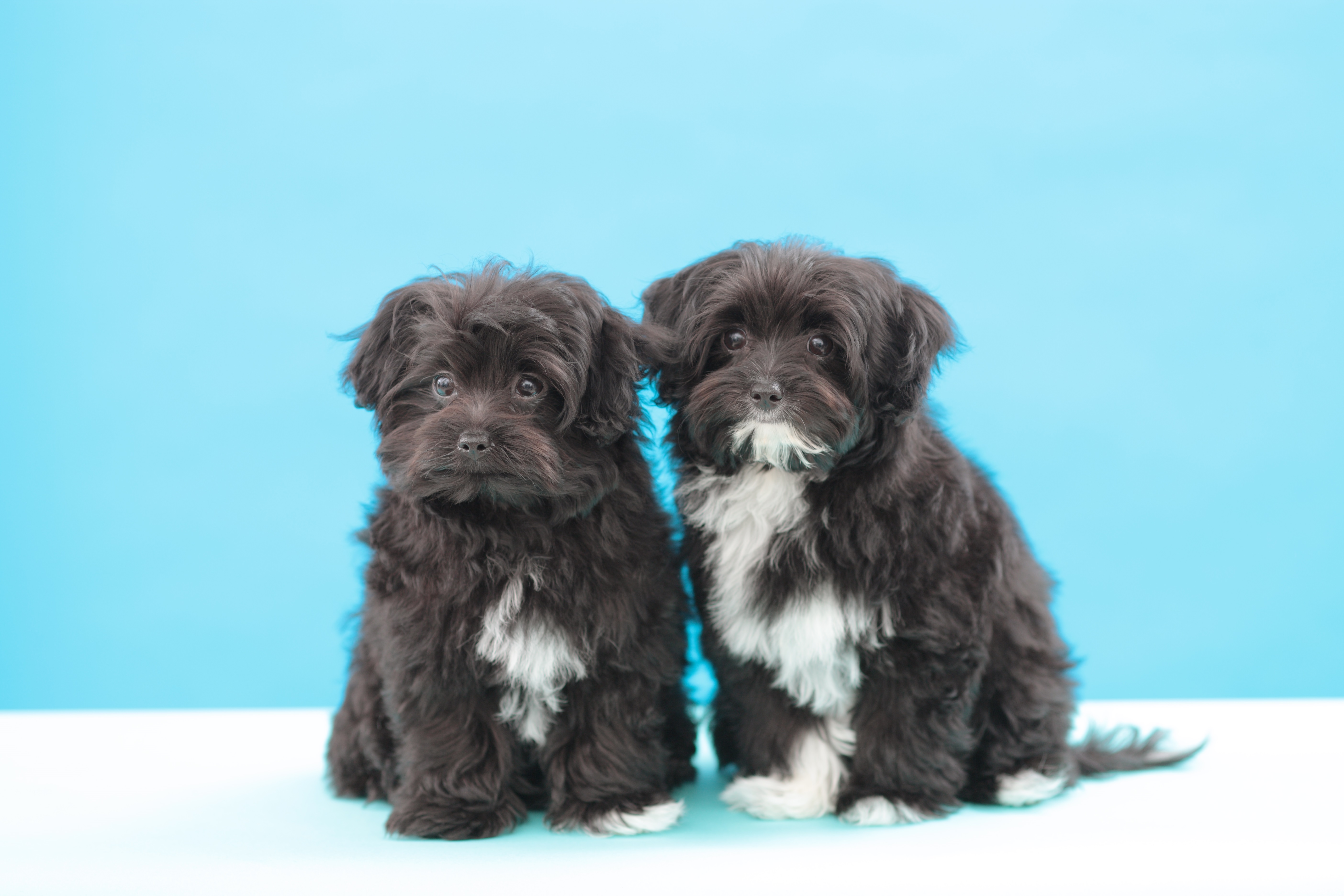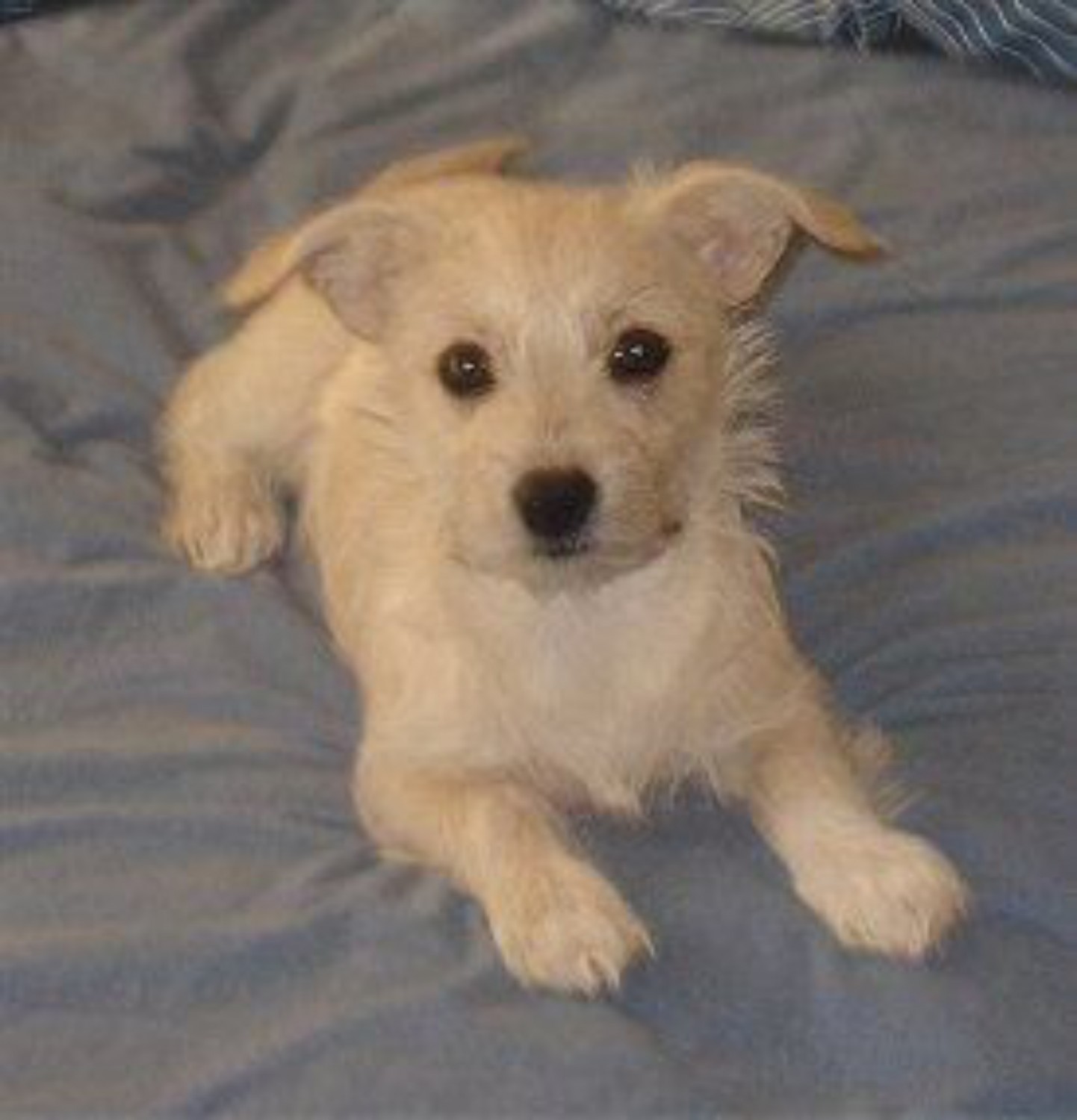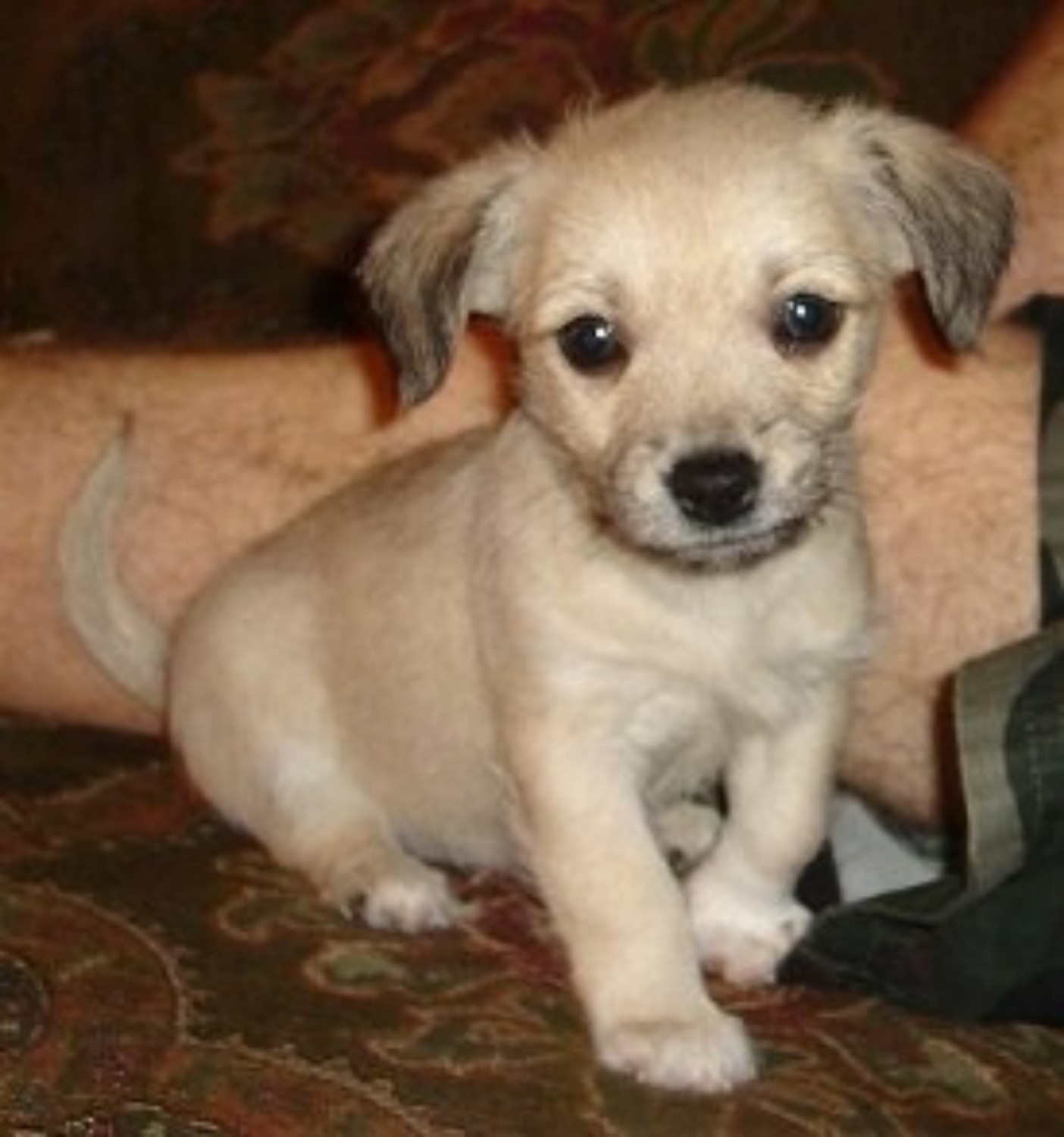Chi-Poo
also known as Poochi, Poohuahua, Choodle, Chi-Poos, Chipoodle

 Summary
Summary
The Chi-Poo, also known as the Chi-Poodle, is a crossbred dog that is created by breeding a Chihuahua with a Poodle. It is a small breed that typically has a compact, sturdy build and a soft, curly coat. The Chi-Poo is a relatively new breed, and as with any mixed breed, its appearance and temperament can vary widely. Some Chi-Poos may inherit more physical characteristics and personality traits from one parent breed over the other, or they may exhibit a mix of traits from both breeds.
The Chi-Poo is generally known for its intelligence, trainability, and affectionate nature. It is a loyal and devoted breed that is well-suited to families with children, and it is often described as being gentle and patient with kids. The Chi-Poo is also known for its energetic and playful personality, and it may excel at activities such as obedience, agility, and therapy work. The Chi-Poo's coat may require regular grooming to maintain its appearance, and it may shed moderately to heavily depending on which parent breed it takes after more. The breed may be prone to certain health issues, such as respiratory problems and eye issues, which may be inherited from its parent breeds. It is important to work with a reputable breeder and to be aware of any potential health concerns when considering a Chi-Poo as a pet.
Breed Information
Is Chi-Poo a purebred?
Cross Breed
What were Chi-Poos originally used for?
Companion
How Long Do Chi-Poos Live? What is average life expectancy for a Chi-Poo? How long can Chi-Poos live?
12-15 years
The average Chi-Poo lifespan is somewhere between 12-15 years, provided they aren't beset by any exceptional health issues or injuries.
Chi-Poo Height & Weight
How big is a full grown Chi-Poo?

| Height | ||||
|---|---|---|---|---|
| Average | 6 months | 12 months | 18 months | |
| Male | 9-13 inches (22.9 - 33 cm) | 7.5 inches (19.1 cm) | 16.0 inches (40.6 cm) | 16.0 inches (40.6 cm) |
| Female | 7-12 inches (17.8 - 30.5 cm) | 6.5 inches (16.5 cm) | 16.0 inches (40.6 cm) | 16.0 inches (40.6 cm) |
| Weight | ||||
|---|---|---|---|---|
| Average | 6 months | 12 months | 18 months | |
| Male | 10-20 pounds (5 - 9 kg) | 7.5 pounds (3 kg) | 17.5 pounds (8 kg) | 17.5 pounds (8 kg) |
| Female | 8-18 pounds (4 - 8 kg) | 5.5 pounds (2 kg) | 15.0 pounds (7 kg) | 15.0 pounds (7 kg) |
Do Chi-Poos get fat easily?
![]()
![]()
![]()
![]()
![]()
The Chi-Poo is a breed that has an average risk of becoming obese. Daily walks and a balanced diet of quality dry dog food can help maintain a healthy weight. An active lifestyle and monitoring weight regularly is recommended.
Are Chi-Poos Hypoallergenic?
No
Unfortunately, the Chi-Poo is not hypoallergenic, making it not a good choice for a dog lover who suffers from pet allergies.
What is a Chi-Poo personality? What are Chi-Poo dogs best known for?
Energetic
Playful
Intelligent
Independent
Companionable
Active
Are Chi-Poos heavy shedders? How Much Does a Chi-Poo Shed?
![]()
![]()
![]()
![]()
![]()
Chi-Poo dogs are low shedders. The coat sheds an average amount and doesn't require much care.
What is the watchdog ability of a Chi-Poo dog?
![]()
![]()
![]()
![]()
![]()
The Chi-Poo dogs are average watchdogs. If they sense something different, this breed will alert their owner.
Breed History
Where do Chi-Poos come from?
United States
What are Chi-Poos descended from?
Chihuahua, Poodle
What organizations or kennel clubs recognize/register the Chi-Poo breed?
American Canine Hybrid Club
Designer Breed Registry
Designer Dogs Kennel Club
Designer Canine Registry
When were Chi-Poos first bred? How old is the Chi-Poo breed?
1970s

Chi-Poo Appearance
What color are Chi-Poo eyes?
Brown
What color can Chi-Poo nose be naturally?
Black
What color can Chi-Poo coat be naturally?
Black
White
Fawn
Cream
Brown
Blue
Brindle
Silver
Gray
How long is a Chi-Poos coat?
![]()
![]()
![]()
![]()
![]()
The coat of a Chi-Poo falls in the medium length category.
How Dense Is The Chi-Poo Coat?
![]()
![]()
![]()
![]()
![]()
What is the texture of the hair of a Chi-Poo?
Wavy
How many puppies can a Chi-Poo have in a litter? How many puppies can a Chi-Poo have in her first litter?
12-15 puppies per pregnancy
A Chi-Poo can have a litter of 12-15 puppies on average. However, it's worth noting that the size of the litters can vary greatly. Factors that can influence litter size include the health of the mother, breeding history, and genetics.
![]()
![]()
![]()
![]()
![]()
The adaptability of Chi-Poo dogs is a well-known trait, they are known for being able to adjust well to different living environments and lifestyle changes.

Chi-Poo Health Issues
Do Chi-Poos have a lot of health problems?
![]()
![]()
![]()
![]()
![]()
The Chi-Poo is a breed of dog that is known to have a higher frequency of health issues compared to other breeds. These issues can range from minor to serious, and regular check-ups with a veterinarian are essential in order to identify and address any potential problems as early as possible.
What are the major health concerns to be aware of when owning a Chi-Poo?
Patellar Luxation
Glaucoma
Hypoglycemia
Overactive Tear Glands
What are the less significant issues to keep in mind when it comes to Chi-Poos?
Dry Skin
None
What are the occasional tests recommended for Chi-Poo breed?
X-Rays
CT Scan
Eye Examination
Physical Examination
Blood Work

Chi-Poo Needs and Activities
Do Chi-Poos have a lot of energy?
![]()
![]()
![]()
![]()
![]()
For those who lead a balanced lifestyle, Chi-Poos may be a good choice as they have an average energy level.
Do Chi-Poos need socialization? How social are Chi-Poos?
![]()
![]()
![]()
![]()
![]()
The Chi-Poo dog has below average social needs compared to other breeds. They are known to be independent and aloof, and they are content with spending time alone and not requiring as much interaction and companionship as other breeds.
How much exercise should Chi-Poos get?
![]()
![]()
![]()
![]()
![]()
The Chi-Poos a breed that requires only a small amount of physical activity to maintain a healthy lifestyle. These breeds are ideal for people with busy lifestyles, elderly people or those who have limited mobility. They also make great pets for those who live in small apartments or have limited outdoor space.
How much sleep should a Chi-Poo have? Do Chi-Poos sleep a lot?
![]()
![]()
![]()
![]()
![]()
The Chi-Poo breed is known for its moderate energy levels and normal sleep patterns, typically sleeping around 12-14 hours per day.
Does a Chi-Poo drool a lot?
![]()
![]()
![]()
![]()
![]()
The Chi-Poo is a breed of dog that is characterized by its minimal drooling, making it an ideal choice for people who dislike drool marks on their clothing.
How much does it bark?
![]()
![]()
![]()
![]()
![]()
Chi-Poos tend to bark moderately, they bark when necessary, such as to alert their owner or to communicate something. They may also bark due to certain triggers like fear, alarm, boredom, greeting, separation anxiety and compulsive barking.
Do Chi-Poos exhibit aggressive behavior to safeguard their home and territory? Do they possess a natural tendency to guard?
![]()
![]()
![]()
![]()
![]()
Chi-Poo dogs are known for being average at defending. They possess the capability to defend their territory or owners, but it is not their primary trait. They are not the best choice for guard dogs
Are Chi-Poos mouthy?
![]()
![]()
![]()
![]()
![]()
What is the likelihood of a Chi-Poo running away? Do they have a tendency to explore or wander frequently?
![]()
![]()
![]()
![]()
![]()
Do Chi-Poo dogs have a high prey drive?
![]()
![]()
![]()
![]()
![]()
What do Chi-Poos enjoy doing? How do I keep my Chi-Poo busy?
Walking, Tummy rubs, Cuddling, Tug of war, Walk, Tug-of-war, Playing, Walks, Fetch, Cuddle, Car rides, Tricks, Chase, Shake, Beach, Relaxing, Park, Groom, Play, Nap, Bath time, Brushing, Running, Barking, Run, Sleep, Eating Snacks
What is the energy level of a Chi-Poo? How much energy does a Chi-Poo have?
Medium
Chi-Poos are medium-energy dogs and typically enjoy socializing and playing casual or even sustained games of chase with other dogs. They may also have occasional periods of barking or racing around the house.
![]()
![]()
![]()
![]()
![]()
How far should a Chi-Poo walk each week? How many miles should a Chi-Poo walk every week?
8 miles / week
There's really no limit to how far you walk your dog as long as they're comfortable. For Chi-Poo, it's at least 8 miles / week. Just remember to build distance and stamina gradually over time.
How much a Chi-Poo should exercise a day? How much activity does a Chi-Poo need?
45 minutes
In general most Chi-Poos usually need at least 45 minutes of exercise daily. This can be spread across the day and include all sorts of high-energy activities, like walking, running and playing.
What level of grooming should be provided for a Chi-Poo?
![]()
![]()
![]()
![]()
![]()
The Chi-Poo is a breed of dog that requires an average amount of grooming effort.
How often should you brush a Chi-Poo?
Weekly
Chi-Poo should be brushed at least once a week. Of course you can give them more frequent brushes if you find that they are still shedding a lot
What are the most commonly used brushing tools for Chi-Poos?
Pin Brush
Comb
Scissors
Nail Clipper
Costs
How many cups of food does a Chi-Poo eat?
1 cups
For an average 10-20 pound (5 - 9 kg) Chi-Poo feed 1 cups daily. But, keep in mind, the amount you feed is going to be dependent on the quality of the food you are feeding.
How Much Does a Chi-Poo Cost Daily?
$1.10 - $1.40 / day
The average cost of a Chi-Poo is somewhere $1.10 - $1.40 per day.
How Much Does a Chi-Poo Cost Per Month?
$35 - $42 / month
The average per month expenses of a Chi-Poo is between $35 - $42. This makes an average of $420 - $504 per year. It will be on the higher side when the dog is still small because it will need more frequent visits to the vet, shots.
Chi-Poo Characteristic
How intelligent is a Chi-Poo?
![]()
![]()
![]()
![]()
![]()
The Chi-Poo breed is considered very intelligent and easy to train.
How sensitive is a Chi-Poo dog?
![]()
![]()
![]()
![]()
![]()
This dog breed is particularly attuned to its environment and the emotions of those around it. It can be easily overwhelmed by loud noises, new environments, and unfamiliar people or animals. This dog is best suited for individuals or families who are patient, gentle, and understanding of its sensitive nature. It may also benefit from a calm and stable home environment, with a consistent routine and plenty of positive reinforcement training.
Are Chi-Poo dogs affectionate?
![]()
![]()
![]()
![]()
![]()
Do Chi-Poo do well in apartments? Are Chi-Poos good indoor dogs?
![]()
![]()
![]()
![]()
![]()
Chi-Poos are known for being excellent apartment dogs. They are fairly active indoors and will do okay without a yard.
Are Chi-Poos good with kids? Are Chi-Poos good around children?
![]()
![]()
![]()
![]()
![]()
A Chi-Poos typical characteristics indicate that this breed of dog is an ideal companion for kids and makes them family pets. Their gentle and protective nature and calm mentality make them gel along quickly with the younger humans
Are Chi-Poos good for elderly?
![]()
![]()
![]()
![]()
![]()
Are Chi-Poos good with cats? How friendly Chi-Poos are toward cats?
![]()
![]()
![]()
![]()
![]()
Chi-Poos are not cat friendly dogs.
Do Chi-Poo dogs get along with other dogs? Are Chi-Poos OK with other dogs?
![]()
![]()
![]()
![]()
![]()
Chi-Poos are average friendly towards other dogs. If they are raised with other dogs, they are likely to get along with them. And, if they are socialized properly from a young age, they will usually be great with other dogs.
How do Chi-Poo dogs interact with other pets? Are they considered pet-friendly?
![]()
![]()
![]()
![]()
![]()
Are Chi-Poos friendly with strangers?
![]()
![]()
![]()
![]()
![]()
Chi-Poos are average friendly around strangers. They can be wary around strangers and a little standoffish. Early socialisation is key.
Do Chi-Poos like to play? Are Chi-Poos playful?
![]()
![]()
![]()
![]()
![]()
The Chi-Poo is a playful dog. So, no matter how busy the day may get, the best thing you can do for your Chi-Poo is to make time each day to play. It can be as little as 15-20 minutes, and it will mean the world to them.
Are Chi-Poo easily trained?
![]()
![]()
![]()
![]()
![]()
Chi-Poo dogs are known for their ease of training and ability to learn quickly, making them a popular choice for pet owners and trainers alike.
 Pros & Cons
Pros & Cons
Pros
- Low maintenance coat
Chi-Poos have a low-maintenance coat that requires minimal grooming, making them suitable for people who do not have the time or resources to groom a high-maintenance breed. - Intelligent and easy to train
Chi-Poos are intelligent and easy to train, making them suitable for first-time dog owners and those who want a well-behaved companion. - Hypoallergenic
Chi-Poos are hypoallergenic, meaning they do not shed as much as other breeds and are less likely to cause allergies in people who are sensitive to pet dander. - Lack of odor
The Chi-Poo is unlikely to have an unpleasant odor. - Adaptable to different living environments
Chi-Poos can adapt well to different living environments, including apartments, houses with yards, and rural areas. - Good with children
Chi-Poos are known to be good with children and make excellent family pets.
Cons
- High energy level
Chi-Poos have a high energy level and require regular exercise and mental stimulation to stay happy and healthy. - Prone to separation anxiety
Like many breeds, Chi-Poos can suffer from separation anxiety if left alone for extended periods of time. - Not cat-friendly
If you have a cat, a Chi-Poo may not be the right dog for you. - Expensive to purchase and maintain
Chi-Poos can be expensive to purchase and maintain, with costs including vet bills, food, and other supplies. - Not suitable for office environment
Chi-Poos are not suited to the office environment - Not suitable for all climates
Chi-Poos have a thick, double coat that may not be suitable for all climates. T